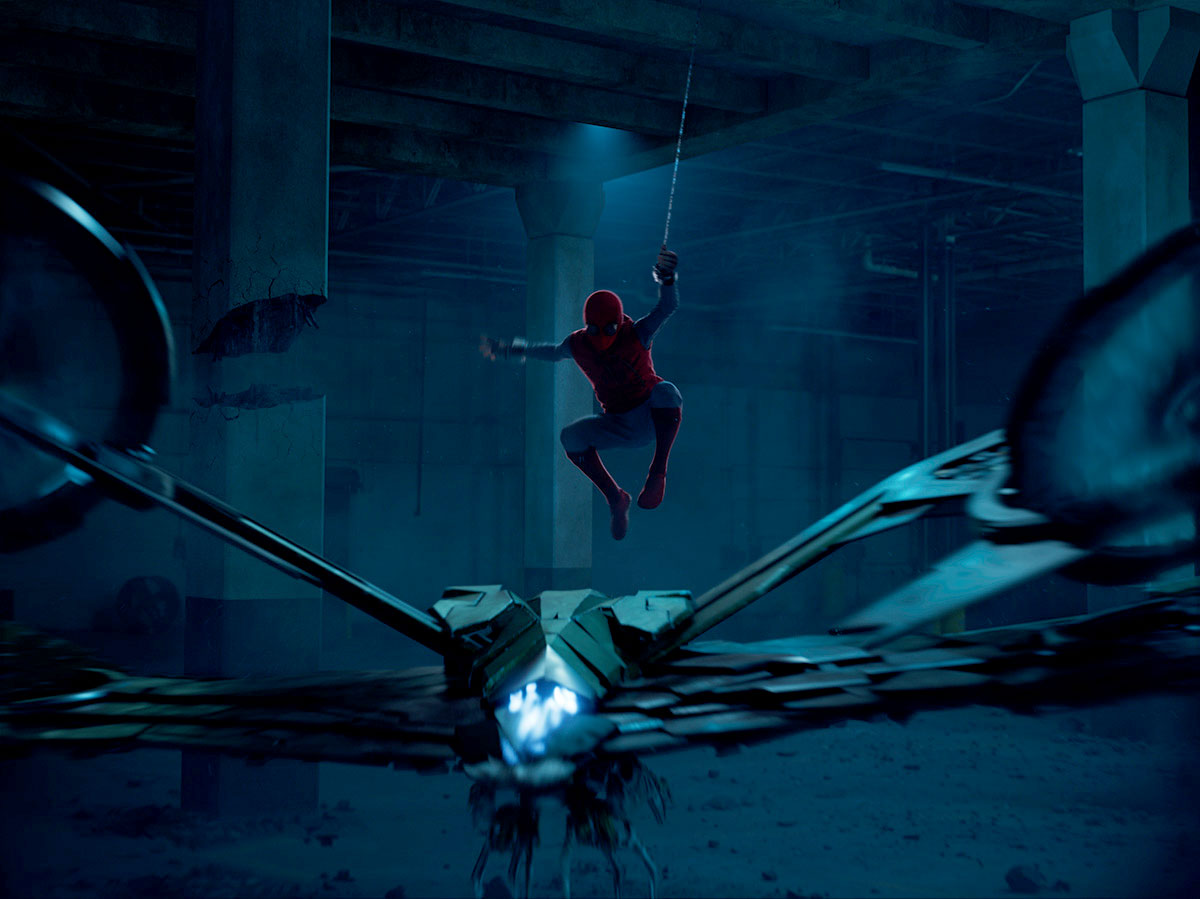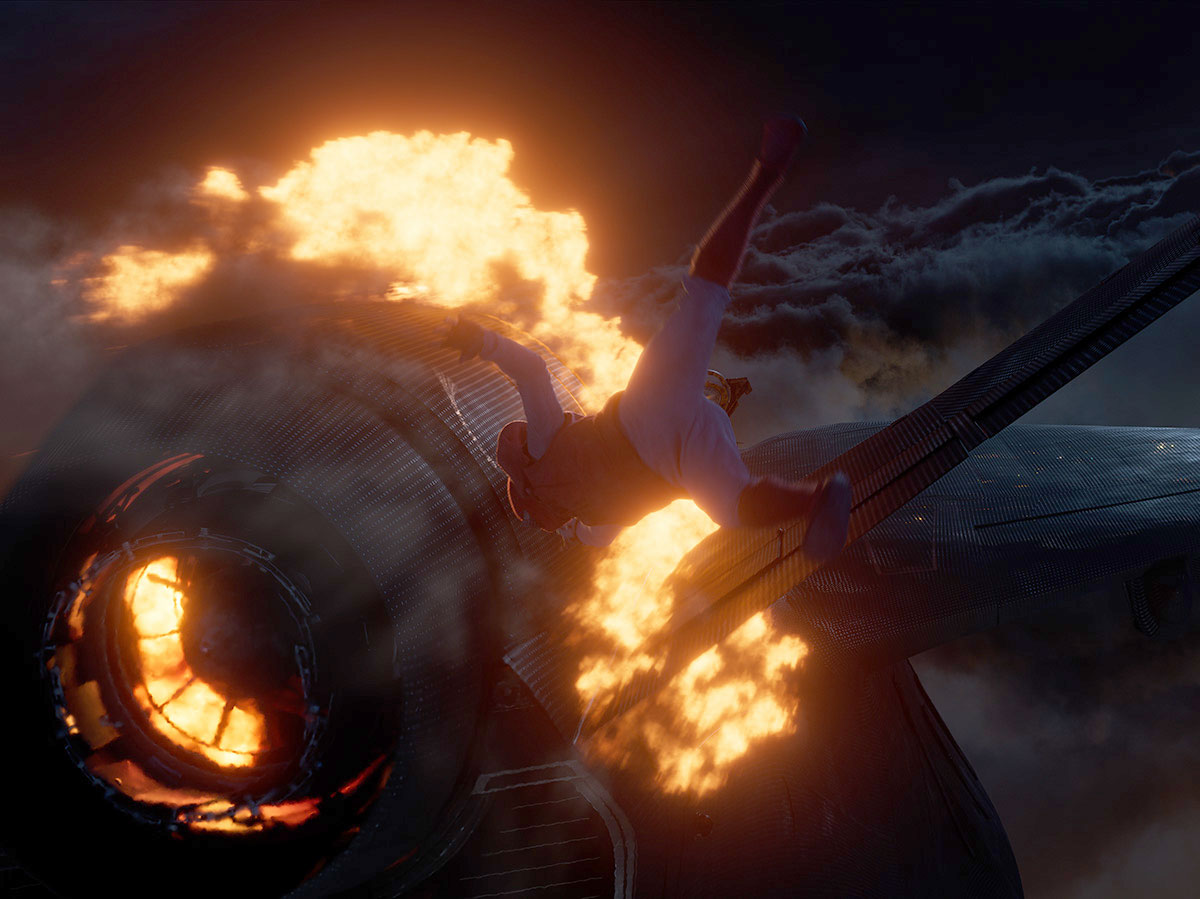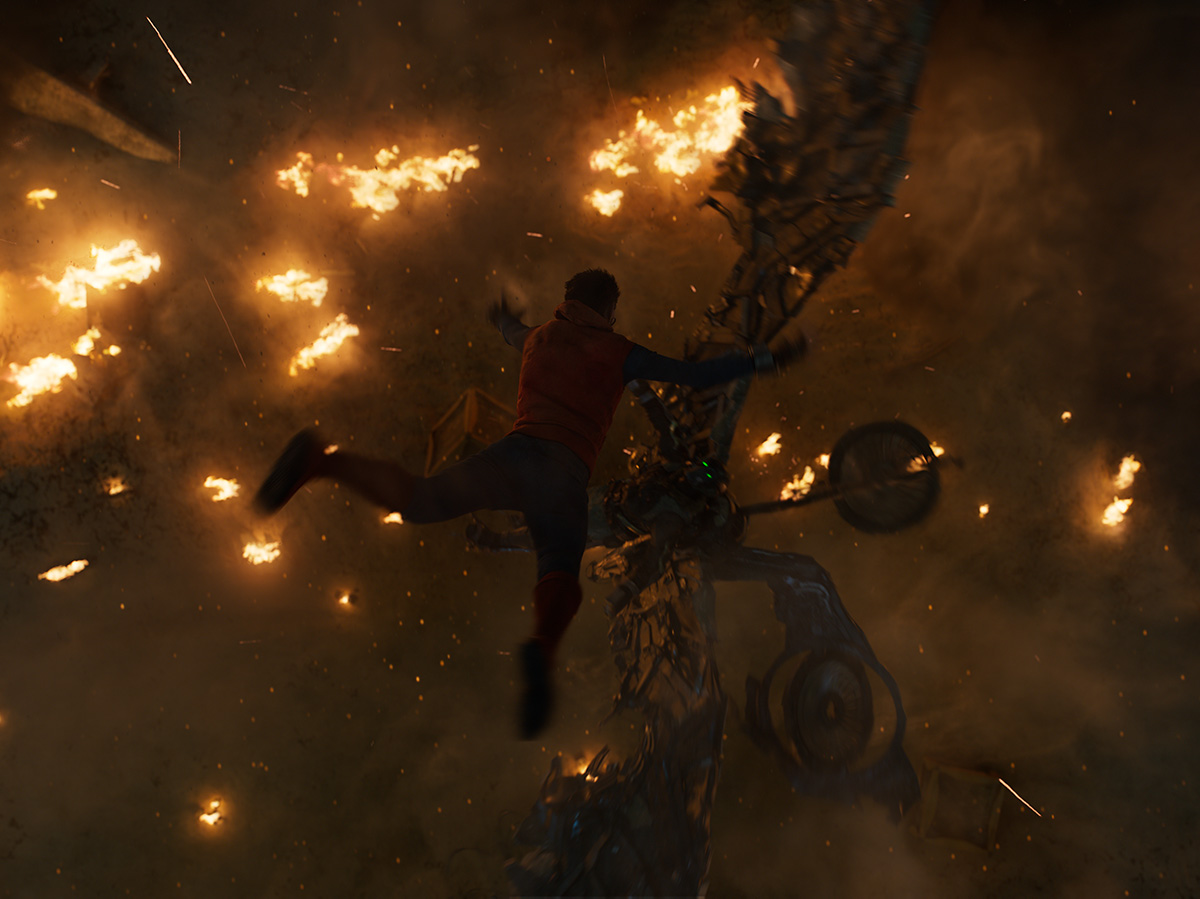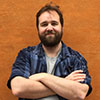INTERVIEW 2017
by Ian Failes, Spark CG Society
July 14, 2017
Spider-Man vs. Vulture: How Imageworks Pulled Off Homecoming’s Thrilling Climax
Towards the end of Jon Watts’ Spider-Man: Homecoming, the newest instalment of the Spider-Man franchise and now part of Marvel’s larger cinematic universe, Peter Parker (Tom Holland) makes a bold choice to try and thwart the efforts of Adrian Toomes (Michael Keaton), who is hell-bent on stealing Avengers weaponry from a plane — mid-flight — as it leaves New York.
Parker first attempts to stop Toomes at a warehouse, then on an Avengers plane, and finally when the plane crashes on a beach — each of these sequences featured visual effects from Sony Pictures Imageworks. Artists based in Los Angeles and Vancouver made use of a digital Parker in his home-made ‘Spider-Man’ garb and Toomes in his CG winged ‘Vulture’ suit. We found out more from Imageworks visual effects supervisor Theo Bialek.
Wings Versus the Warehouse
In the warehouse, Toomes turns his wings against Parker by sending it to knock down the surrounding concrete columns. To help with animation of their digital Parker trying to jump clear of the wings, Imageworks looked to some rather interesting video footage.
“We found references of people who like to jump over moving cars — apparently that’s a thing,” notes Bialek. “These guys just stand there and then these sports car, generally low, low sports cars, go racing towards them in excess of 70, 80 miles an hour, and these people just jump straight up in the air, and they’d leap over these cars.”

“We even looked at reference of this cheese rolling contest where they roll cheese down a hill in England,” adds Bialek. “That was for when we had a shot in the beach battle where someone is rolling off the plane, and we would look at that for reference for having someone tumble. Tom actually had reference of himself jumping on trampolines, and doing like jumping side flips, and back flips, too.”
In the warehouse battle, and in a few other sequences Imageworks was responsible for, Parker wears a loose version of a suit he has hand-made. It’s a far cry from the form fitting tech-fitted version that Tony Stark had made for Parker, but it does the job. For the visual effects team, it was still a challenging exercise to realize, due to its extra drawstrings, floppy hood and need to simulate secondary cloth motion.
“We built the costume in Marvellous Designer,” explains Bialek. “It forces the modeller to construct the cloth physically accurately. So all the panels and stitching lines are all in the right places that a real costume would be — there were no cheats done in that sense.”
Flying High
The plane sequence began with concept art and previs. The action was to be incredibly frenetic, which means much of the battle would be produced in CG. Motion capture shoots for Spider-Man using stand-in shells for the plane and other set pieces for Imageworks’ sequences gave the studio much-needed animation reference. They also relied on its own motion capture produced back at the office with an XBox Kinect set-up.
“I’d say probably 30 per cent of the character animation we did, we ended up using mocap that we shot or from our own low tech mocap sessions,” states Bialek. “And even the stuff we didn’t necessarily use, we used for reference. It was really key to having the animators kind of lock into Tom and how he acts.”

“We’d even look at the off-takes,” continues Bialek. “Like, when he kind of trips, or something, and you obviously can’t use that, but you see how he catches himself, and how he reestablishes his balance. We were trying to infuse that into the performance whenever we could.”
Vulture was also a digital creation, with a model shared from a different vendor. The challenge in animating this character came from the 32 foot wingspan, and the sheer weight of the wings. “We’re always trying to come up with clever little ideas on how to force that kind of resistance,” says Bialek. “Michael Keaton’s character isn’t really a superhero, so he doesn’t move with lightning speed, he moves like a normal person would, and that was the idea.”
The Avengers plane that Vulture attempts to take over is fitting with a cloaking system. It had to be somewhat grounded in reality, so Imageworks referenced a real-world system made by BAE Systems for tanks and armoured vehicles.
“They use these tiles that can basically emulate a heat signature with any vehicle, or any object,” says Bialek. “In fact, they can put cameras on these tanks and they’ll see what you would see behind the tank, and then create kind of a low resolution heat signature on the side of the tank. So we looked at that, and how they constructed those tiles, and put them on the surfaces of the plane.”
Beach Battle
The plane ultimately crashes on a beach near Coney Island, and Spider-Man and Vulture stand off once more amid a fiery wreckage. “The shot the fight on this giant sandbox — it was huge,” says Bialek. “And they had pieces of plane wreckage, all smashed up, that they used. And they had a bunch of debris there, and flame bars. We scanned the beach set and made a digital version and did extensions.”

One aspect of the film Bialek particularly enjoyed — and that has been quite common on recent Marvel and Sony films — is the collaboration between vendors. Different visual effects studios would tackle different CG builds, share assets and sometimes even work on the same sequences.
“It is a very collaborative effort with them. And they’re also not looking for a vendor that’s just going to do what they’re told. They want somebody who’s also going bring stuff to the table and show them.”
All images and clips, copyright 2017 Sony Pictures. All Rights Reserved.
 |
Ian Failes is a Sydney-based writer specializing in visual effects and animation. He also collects memorabilia from the film Speed. Follow him at @vfxblog. |
![]()
![]()
© 2025 · Spark CG Society

















